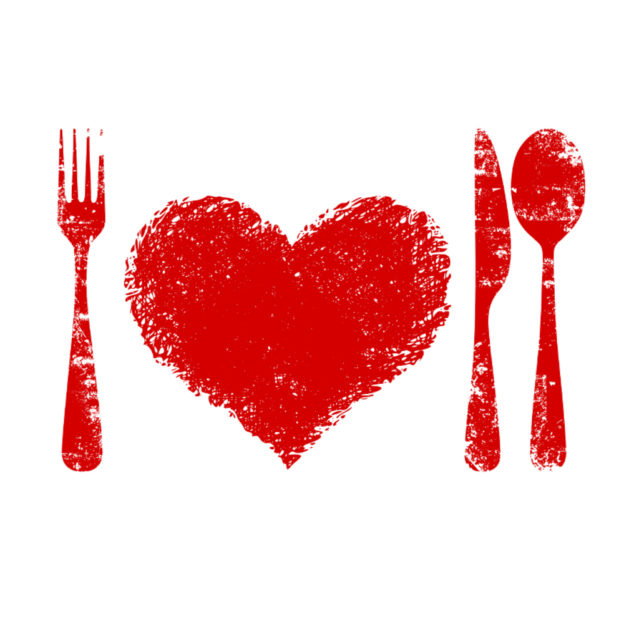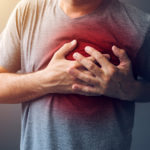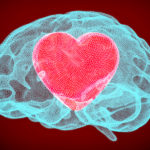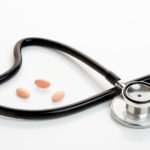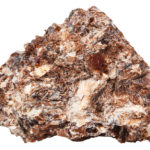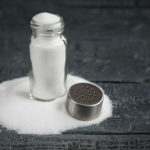By David Blyweiss, M.D., Advanced Natural Wellness
October 25, 2019
I’m not what you’d call a prescription “pill popper.”
Maybe you are. And, your doctor has ordered a whole cabinet-full of prescription medications to help protect your heart.
In my opinion, people put too much faith in the power of prescription drugs these days. It’s a big mistake actually.
Why? Well, pharmaceutical drugs don’t do anything to boost your heart health.
In fact, they often make things much, much worse.
That’s because they come with a whole host of side effects that can damage your entire cardiovascular system.
So, just one prescription drug can cause side effects… which require another drug… which cause more side effects… which call for another drug…
You get the idea. And none of those additional drugs are doing anything good for your heart.
Let me give you an example…
MD Exposes the Hidden Danger to Your Eyes

When your eyesight starts to fail, it's a real problem. Suddenly you can't go to the grocery store... you can't get to the doctor if you have an emergency... you can't meet your friends for dinner…
Your "regular" doctor doesn't have time to keep up with the latest research. And the same goes for eye doctors. They go to school to learn how to fit you for glasses and contacts, but have no way of preventing the damage and loss of eyesight that threatens your freedom and independence.
Let me show you something that explains a LOT about how your eyes work.
In my FREE Special Report, I'll show you a HUGE, untapped resource for your eyes that safely and naturally restores clear, effortless eyesight.
Click here to get started...
Drugs Won’t Save You from Heart Disease
Let’s imagine you’re taking a diuretic medication to help lower your blood pressure.
These diuretics come with some serious side effects. They can cause your LDL cholesterol and triglycerides to increase. And they wash out critical minerals and raise blood sugar.
When this happens, you’ll likely be told to add a statin to your regimen.
You may think this will be good for your heart. But statins increase the odds of your arteries hardening by more than HALF – among other side effects.
This leaves you wide open for rips and tears, inflammation, plaque accumulation and blockages in your blood vessels.
So, now you’re told to take something like Coumadin, Plavix, or Xarelto to help thin your blood. This ensures you don’t end up with a clot in the event of a plaque rupture or cardiac arrhythmia.
But it doesn’t end there…
Those statins you’re taking also come with a risk of developing diabetes. So, it might not be long before you’re also taking a drug like Metformin or Glyburide to control your blood sugar.
See how it goes?
You start off taking one drug, and end up on four in no time flat.
Heart-Healthy Alternatives with Great “Side Effects”
Now, if you were to replace these drugs with supplements, exercise, and nutritious foods, the story could be much different.
For instance, high blood pressure can be lowered in about three hours with beetroot juice. This juice boosts your nitric oxide levels, which is absolutely necessary for proper blood flow.
Are You Suffering From...
- Love handles and a pot belly
- Romance that isn't what it used to
- Forgetfulness and inattention
- Low (or no) strength and endurance
- A sex drive that's shifted into neutral...or worse
If so...you may have Mature Male Burnout. Click here to discover more about this unique condition and what you can do about it.
Just 250 ml each day can lower your blood pressure by about 8/4 mmHg. If you prefer a pill form instead of juice, I recommend looking for a plant-based NO (nitric oxide) enhancer that has beetroot juice as its main ingredient.
Great side effects: Beetroot juice helps reduce arterial stiffness and thickening of the arteries. Plus, dietary nitrates like those found in beetroot juice can have a positive effect on obesity and insulin resistance.
What if you’re worried about cholesterol?
Well, there’s a tangy fruit called bergamot. It’s not really edible in my opinion, but you can buy bergamot extract in supplement form.
This extract can help balance your LDL/HDL ratios. In fact, it only takes about 30 days to boost your HDL over 40%, while lowering LDL by about 38%.
Great side effects: Bergamot can cut triglycerides by about a third. It also reduces the number of harmful small, dense LDL particles circulating through your bloodstream – something that’s very important.
And to top it off, bergamot can help slash your risk of diabetes by lowering blood sugar.
I recommend 500 mg of bergamot daily in supplement form, or 100 ml daily of the bergamot juice.
Worried about clots?
Garlic contains compounds that help keep your blood cells from clumping together. Medically speaking, this is called “antiplatelet activity” – which means improved blood flow and less chance of clotting.
Great side effects: Aged garlic (but not raw garlic) prevents the oxidation of LDL cholesterol. It lowers blood pressure, reduces plaque build-up and arterial stiffness, and can even help bring blood sugar problems under control.
Your best bet is to take 300 mg of Kyolic brand aged garlic extract daily.
These are just a few heart-healthy alternatives to prescription drugs. There are also many others – like niacin, omega-3 fatty acids, ginger, magnesium and CoQ10.
But we can talk about those some other time…
In the meantime, if your doctor tries to hand you a prescription for something that will “protect” your heart health… ask him what exercise, diet and some of these nutrients can do for you.
SOURCES:
Nakazato R, et al. Statins use and coronary artery plaque composition: results from the International Multicenter CONFIRM Registry. Atherosclerosis. 2012 Nov;225(1):148-53.
Sattar N, et al. Statins and risk of incident diabetes: a collaborative meta-analysis of randomised statin trials. Lancet. 2010 Feb 27;375(9716):735-42. Epub 2010 Feb 16.
Webb AJ, et al. Acute blood pressure lowering, vasoprotective, and antiplatelet properties of dietary nitrate via bioconversion to nitrite. Hypertension. 2008 Mar;51(3):784-90.
Kapil V, et al. Dietary nitrate provides sustained blood pressure lowering in hypertensive patients: a randomized, phase 2, double-blind, placebo-controlled study. Hypertension. 2015 Feb;65(2):320-7.
Sansbury BE, et al. Regulation of obesity and insulin resistance by nitric oxide. Free Radic Biol Med. 2014 Aug;73:383-99.
Mollace V, et al. Hypolipemic and hypoglycaemic activity of bergamot polyphenols: from animal models to human studies. Fitoterapia. 2011 Apr;82(3):309-16.
Gliozzi, M, et al. The Effect of Bergamot-Derived Polyphenolic Fraction on LDL Small Dense Particles and Non Alcoholic Fatty Liver Disease in Patients with Metabolic Syndrome. Advances in Biological Chemistry, 4, 129-137. 2014.
Allison GL, et al. Aged garlic extract and its constituents inhibit platelet aggregation through multiple mechanisms. J Nutr. 2006 Mar;136(3 Suppl):782S-788S.
Ried K, et al. The effect of aged garlic extract on blood pressure and other cardiovascular risk factors in uncontrolled hypertensives: the AGE at Heart trial. Integr Blood Press Control. 2016 Jan 27;9:9-21.
Ahmad MS, et al. Antiglycation properties of aged garlic extract: possible role in prevention of diabetic complications. J Nutr. 2006 Mar;136(3 Suppl):796S-799S.

